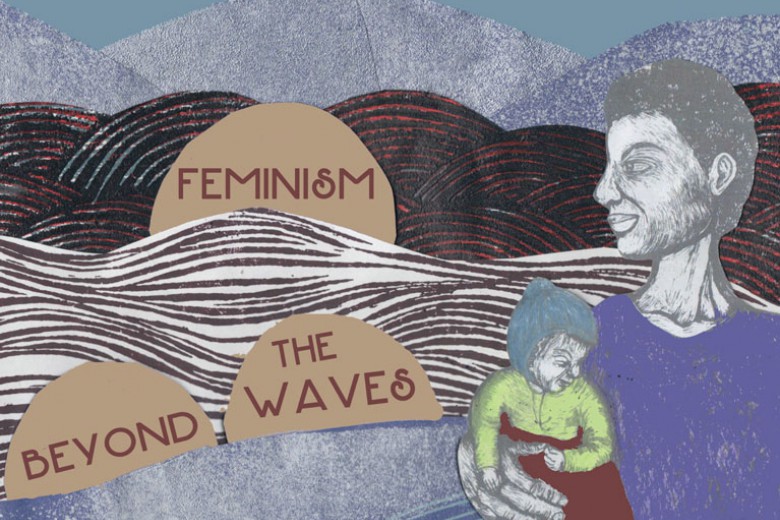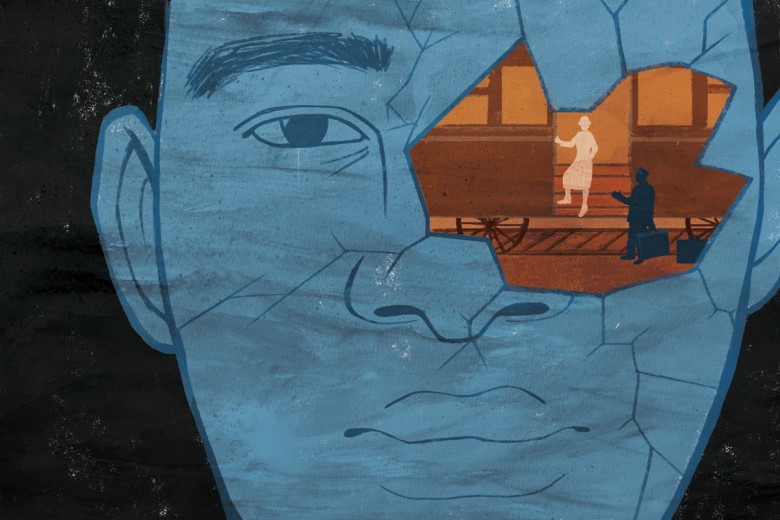Doug Nesbitt lives in Kingston, Ontario, where he has been active in his union. He is currently a PhD student at Queen’s University and is writing a history of the Ontario Days of Action movement against the Mike Harris government. David Bush is a former union organizer with the Service Employees International Union Local 2. He is an editor at RankandFile.ca and Canadian Dimension. He is a member of Unifor and CUPE.
Why was R&F founded and why is a Canadian labour news website important?
We wanted to fill a gap we saw in Canada’s labour movement and on the left. As active union members and committed socialists of one stripe or another, we really wanted to see something in Canada like Labor Notes in the U.S., where worker activism, labour journalism, and principled socialist politics combine. We started out as a weekly radio show in Kingston, Ontario, but within a year we shifted entirely to a website.
Your focus isn’t just labour news but “labour news from a critical perspective.” What does that mean?
We are getting the shit kicked out of us by employers and governments. We’re not making substantial gains, we aren’t scoring significant organizing victories, and a lot of workers are just trying to hold on to what they have. And then there are endless stories about the problems and the ugliness within our unions and campaigns. The problems facing us have to be tackled honestly and openly. That’s what we mean by labour news from a critical perspective. The problems facing us are bigger than loyalties to particular individuals or unions or sectors.
What kinds of stories have been of most interest to people?
Whenever we interview and publish a story about injured workers, it taps into one of the most abused and neglected groups of people. Anyone telling their stories is going to be an ally because the situation is so desperate and awful. Stories written by workers or interviewing other workers have a real, lasting impact. One Air Canada worker wrote about the context of the infamous bag-toss incident that was captured on video and went viral. The story got thousands of readers because it told the truth about workplace speed-up and how management cracks the whip – stuff you never read in the press.
Have you encountered any pushback or criticisms?
Absolutely. Sometimes union leaders have weighed in, disagreeing with what we’re saying about a particular issue, and we’ve let them publish their views as an online comment. More of this sort of back-and-forth is needed because communication between members and leaders in unions is often non-existent or manipulated. People need to be open about where they stand, but be ready to debate the way forward based on principles. It’s the only way union democracy can function.
That’s why we have an open door to workers writing for us because we need many perspectives and experiences put out there. The problems facing the workers’ movement can’t be resolved by a handful of people on paper.
We need a lot of people involved to get an accurate assessment of what’s really going on and what the solutions are. It’s really easy to provide answers if you don’t have to implement them. The workers’ movement is about real struggle. R&F is about discussion, dissent, and debate while keeping our eyes on the prize.
Unfortunately, the majority of workers aren’t in unions. Does R&F offer them anything as readers or is your focus just unionized workers?
This is a constant battle. Without a union or some sort of organization, workers are not simply alone when they take on the boss, but they’re also alone if they want to go to the media. Unions can get in the news. The CUPE 101 municipal strike in London, Ontario, this year was a story about 750 workers. That got daily news coverage for eight weeks. But during that time, how many non-union workers got their story of workplace struggle in the press? Probably zero. Even when we’ve covered migrant worker struggles which are almost all non-union struggles, migrant worker organizations have been a crucial link for us. Ultimately we strive to be a publication for all workers in struggle, whether they have a union or not, but really telling the stories of non-union workers who lack organizations requires resources that we don’t have yet.
What is your sense of the state of rank-and-file organizing and rank-and-file culture in Canada in 2015?
There are rank-and-file networks of activists every-where but, unlike some unions in the U.S., almost none of it is organized with a coherent independent strategy, politics, and structure. But there are examples of unofficial job actions and membership revolts against contract offers. The airline and rail industries have some powerful rank-and-file groups, and we’ve seen sick-outs and wildcat strikes in recent years because of this in response to federal anti-strike legislation.
I’ve noticed an increase in the number of women writing for R&F recently. Is that the result of conscious efforts on the part of editors?
Yes, it’s a conscious effort and an ongoing conversation and priority amongst our editorial board members. The working class is the most diverse and complex section of society, and if we want to be both relevant and rooted in the working class, we have to reflect it in who contributes to R&F. And because work is shaped by historical and current practices of sexism, racism, nationalism, and other forms of oppression and exclusion, we have no excuse not to consciously work for diversity. Part of the class struggle means working together as a class while working in solidarity against the forms of oppression that divide us.
How is R&F funded? Are contributors paid for their stories?
We’re funded by donations only, which we accept from individuals, local unions, and labour councils. We haven’t gotten any donations from a national or provincial union and we’re wary of the strings that might be attached there, whether they’re stated or not. We’ve used the small amounts of money we’ve collected to hire regional correspondents in Vancouver, Halifax, and the Prairies. Everything else we’ve published is volunteer labour. We want to compensate everyone, but we don’t have the capacity and resources to do that yet.
What has surprised you the most about the project?
Honestly, the biggest surprise is that people in the movement pay attention. When we go to demonstrations, pickets, or events people know about us. They read our stuff. It feels like we have an impact, however small, on debates within the labour movement.
What frustrates you the most about the labour movement in Canada and what gives you the most hope for it?
That’s such a hard question to answer. We have the skills, we have the activists, and there are always glimpses of what is possible in terms of large-scale worker revolts, but I don’t think we have the organization and clarity in our political priorities. The result is that we’re living in a permanent employers’ offensive, and labour’s general approach is waiting for elections or going to the courts. And when we do strike, it’s too often a bunker mentality. Resources need to pour into organizing members and the wider public. The amount of money blown on lobbying and advertising could sustain an army of organizers to expand and empower our movement.
What gives us hope is the fact that this project has put us in touch with people in the labour movement from across the country who feel the same way. Those people inspire us: they are out there every day working their butts off to build a fighting working class.







